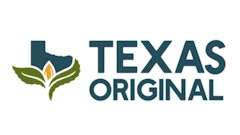Judge Alvin Hellerstein dismissed the Washington v. Sessions civil complaint today, asserting that the plaintiffs had not yet pursued all "administrative" pathways to their goal of rescheduling cannabis through the Controlled Substances Act. The lawsuit had argued that the Schedule-I classification of cannabis was a fundamental violation of constitutional rights.
The plaintiffs included 12-year-old Alexis Bortell, whose family moved from Texas to Colorado to procure medical cannabis to treat her intractable epilepsy, and former NFL player Marvin Washington. Oral arguments were held on Feb. 14.
In his order, Hellerstein underscores that his decision is "not on the merits of the plaintiffs' claim." Indeed, during oral arguments, the judge took note of Bortell's personal story and the life-saving impact of medical cannabis.
In today's order, Hellerstein writes: "Plaintiffs' amended complaint, which I must accept as true for the purpose of this motion, claims that the use of medical marijuana has, quite literally, saved their lives.
"One plaintiff in this case, Alexis Bortell, suffers from intractable epilepsy, a severe seizure disorder that once caused her to experience multiple seizures every day. After years of searching for viable treatment options, Alexis began using medical marijuana. Since then, she has gone nearly three years without a single seizure.
"Jagger Cotte, another plaintiff in the case, suffers from a rare, congenital disease known as Leigh's disease, which kills approximately 95% of those afflicted before they reach the age of four. After turning to medical marijuana, Jagger's life has been extended by two years and his pain has become manageable.
"I highlight plaintiffs' experience to emphasize that this decision should not be understood as a factual finding that marijuana lacks any medical use in the United States, for the authority to make that determination is vested in the administrative process."
Ultimately, though, Hellerstein found that the plaintiffs did not sufficiently argue that the Schedule-I classification lacks a rational basis. To target the DEA and U.S. Congress' conclusion that there is "no currently accepted medical use for marijuana," the plaintiffs must first exhaust all administrative remedies within those organizations.
Quoting case law, Hellerstein writes: "The general rule is that 'a party may not seek federal judicial review of an adverse administrative determination until the party has first sought all possible relief within the agency itself."
Read the full order here:
Judicial dismissal: Washington v. Sessions by sandydocs on Scribd
























